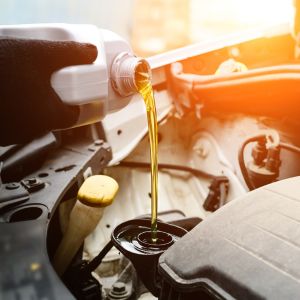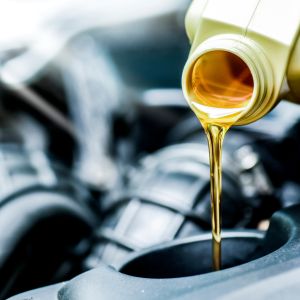Proper car maintenance is crucial for ensuring optimal performance and longevity. One common mistake that car owners make is overfilling the engine oil, thinking that more is always better. In this article, we’ll delve into the question that often plagues car owners: How long can you run your car with too much oil? Understanding the risks, consequences, and steps to rectify this error is essential for preserving your vehicle’s health.
Identifying Overfilling

Before exploring the impact of excessive engine oil, it’s important to know how to identify overfilling. The dipstick is a handy tool for this purpose. When checking your oil level, the dipstick should display a range or indicator marks. If the oil level surpasses the maximum mark, you may have overfilled the engine.
The Risks of Overfilling

1. Increased Pressure and Foaming
Run your car with too much oil can lead to increased pressure within the engine. The excess oil, unable to circulate properly, can cause foaming. This foamy mixture loses its lubricating properties, putting critical engine components at risk of increased friction and wear.
2. Oil Leaks and Seal Damage
Overfilling can also lead to oil leaks and damage to engine seals. The excess pressure generated can force oil past seals and gaskets, leading to leaks. This not only creates a mess but can also result in a loss of oil, further exacerbating the problem.
3. Aeration and Reduced Lubrication
Aeration, or the introduction of air into the oil, is another consequence of overfilling. Air bubbles in the oil can diminish its lubricating properties, leaving vital engine components susceptible to wear and tear. This compromises the engine’s overall efficiency and performance.
How Long Can You Run Your Car?

The duration for which you can run your car with too much oil depends on various factors, including the extent of overfilling, driving conditions, and the type of engine. In general, it’s advisable to address the issue as soon as possible to prevent potential damage. If you suspect overfilling, it’s best to consult your vehicle’s manual or seek professional advice that how long you can run your car.
Impact on Engine Performance
1. Decreased Fuel Efficiency
Excessive oil in the engine can lead to increased friction, reducing fuel efficiency. The engine has to work harder to overcome the added resistance, resulting in higher fuel consumption. Over time, this can translate into increased fuel costs and a negative impact on your wallet.
2. Reduced Horsepower
An overfilled engine may experience reduced horsepower. The added pressure and foaming can compromise the smooth operation of engine components, leading to a decrease in overall power output. This not only affects performance but can also impact your driving experience.
Mitigating the Damage
If you’ve accidentally overfilled your engine oil, taking prompt action is crucial. Here are steps to mitigate potential damage:
1. Drain Excess Oil
The most effective way to rectify overfilling is to drain the excess oil. This can be done by removing the oil drain plug and allowing the surplus oil to drain out. It’s essential to catch the oil in a container for proper disposal.
2. Replace the Oil Filter
In some cases, the oil filter may be contaminated due to overfilling. It’s advisable to replace the oil filter during the oil change to ensure that any impurities or excess oil are removed from the system.
3. Monitor Oil Levels
After addressing the overfilling issue, monitor your oil levels regularly. Keep an eye on the dipstick readings and ensure that the oil remains within the recommended range. This proactive approach can prevent future overfilling incidents.

